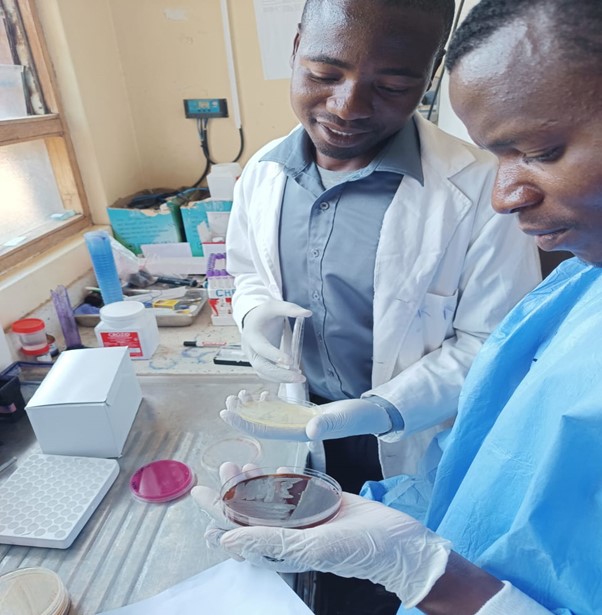
Clinical laboratories in Malawi form the foundation of evidence-based patient treatment and care. They are a fundamental component of disease surveillance, diagnosis and monitoring at every level of the healthcare system. Microbiology is one of the services offered by clinical laboratories to guide clinicians in antibiotic prescription and monitoring of antimicrobial resistance trends among pathogens of medical importance.
Laboratories require competent human resources, material support, continuous supervision and mentorships to carry out tests and produce good-quality and reliable results. In Malawi, the District Public Hospital and Christian Health Association of Malawi (CHAM) laboratory services have suffered from inattention and chronic under-development with minimal resources for microbiology services.
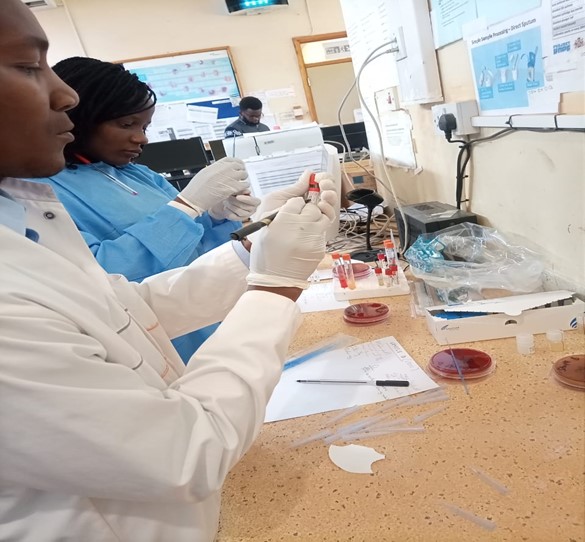
Recently the Government of Malawi, Ministries of Health through the Public Health Institute of Malawi (PHIM) has increasingly prioritised the quality of microbiology testing services by incorporating the implementation of quality management systems improvement and capacity-building activities into laboratory service work plans.
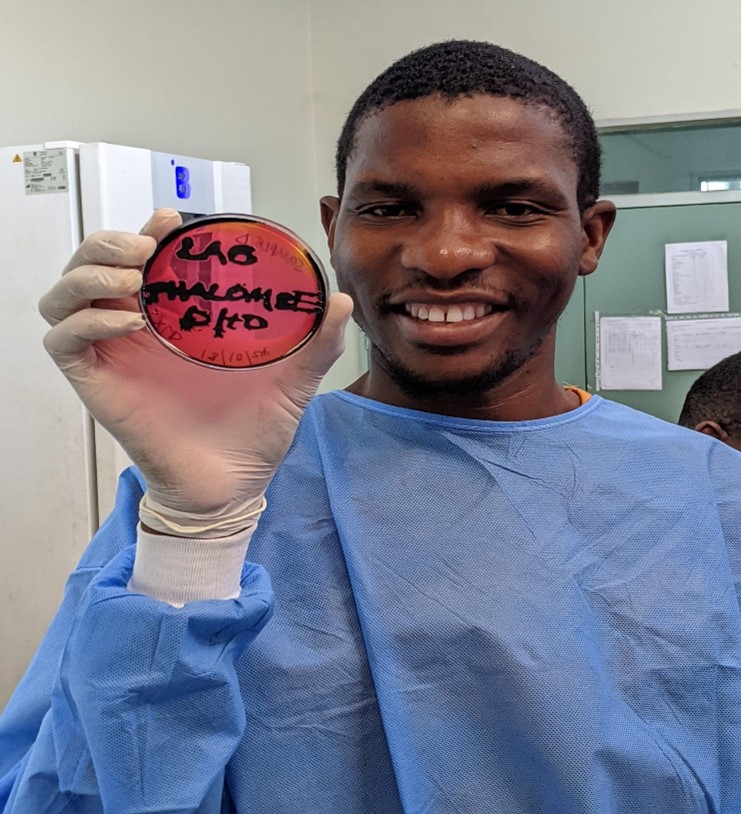
Laboratory officer happily showing the intended result from culture.
One of the improvement strategy is to train more laboratory staff in basic microbiology and to scale up number of laboratories that could conduct microbiology testing.
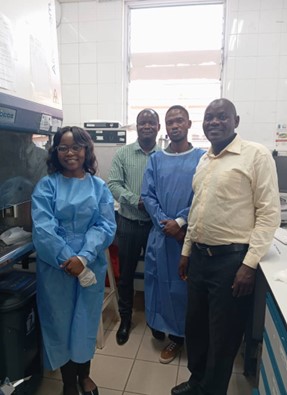
Mr Yollam Chavula , Principle Laboratory Scientist responsible for technical microbiology work at NPHL and team.
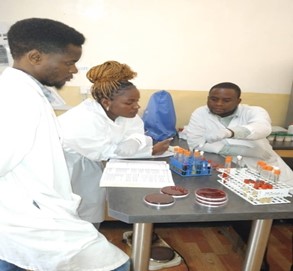
Miss Khumbo Maseko a microbiologist at NPHL demonstrating culture and sensitivity tests at one of the laboratories in Malawi
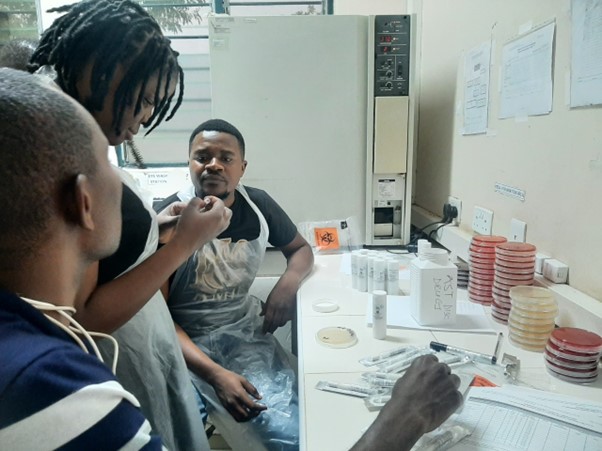
PHIM through National Microbiology Reference Laboratory (NMRL) holds a critical role in rapid response to infectious diseases. Among its mandates, the NMRL leads Malawi’s laboratory microbiology-based surveillance and disease control services through the detection of pathogens using microbiology techniques. It has a plan to have a network of district and Mission laboratories capable of conducting culture and sensitivity testing to confirm disease outbreaks.
It is for this reason that NMRL planned to conduct supportive supervision and mentorship for 9 laboratories including Machinga, Chiradzulu, Phalombe, Mulanje DHO, Mulanje Mission, Nsanje, Chikwawa, Malamulo mission and Nguludi (ST Joseph mission).
The activity involved the preparation of culture media, doing quality checks for the prepared culture media, and culturing patients’ samples. The activity also involved organism identification, drug sensitivity testing (AST) and how to report results.
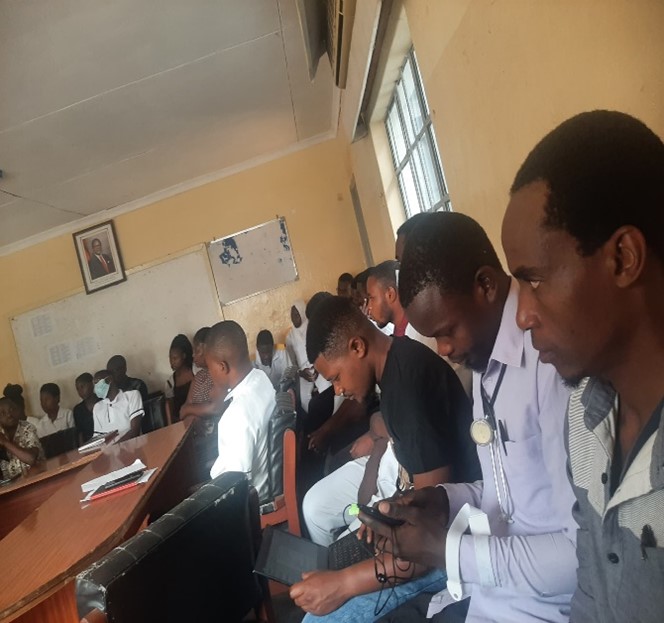
The team also had an opportunity to attend daily district hospital morning reports as a means of sensitizing clinicians and nurses to use laboratory as evidence in the management of patients.




Commenting on the activity, the deputy director Mr Joseph Bitilinyu Bangoh who is also the head of the National Public Health Laboratory, highlighted that microbiology activities play a crucial role in patient management, outbreak investigations and disease surveillance. He again said that no surveillance is complete without a laboratory and that laboratory workers need to be vigilant when it comes to disease investigations. He sympathetically said that sometimes Public Health issues go without answers, citing a recent Neno outbreak and conjunctivitis that cost mortality and morbidity among children attending primary schools. He further said that emergency outbreaks like the Neno disease need to be responded to rapidly by the laboratory so that intervention are mitigated and implemented promptly. He encouraged those who went for mentorship and supervision to work hard and provide quality mentorship skills so that microbiology in Malawi gives proper answers to outbreaks and other health needs. He promised the team that he was in support of the activity and in his capacity as deputy director PHIM, he would make sure that NPHL is involved in all disease surveillance and outbreak investigations.

This is a great initiative to equip peripheral laboratories in basic microbiology. With a lot of emerging infections our laboratory diagnosis must be improved to contain them timely.